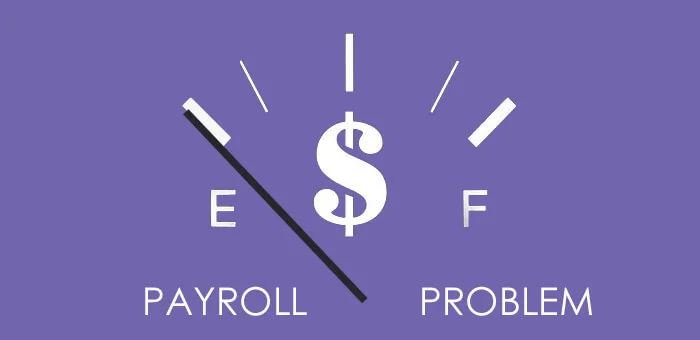Small Business Loans For Payroll Vs Traditional Business Loans

Getting any kind of loan for small businesses comes with various lending requirements. Banks and other lending institutions do not want to take on too much risk by handing out funds to just anyone. Consequently, traditional business loans often require you to meet stringent criteria just to qualify. Alternatively, small business loans for payroll offer a legitimate alternative, with fewer requirements and more benefits to small businesses in need of temporary payroll assistance. In today’s post, we are going to take a closer look at small business loans for payroll vs traditional business loans.
Business Loan Requirements
Much like any kind of loan, you have to meet certain requirements to qualify for and attain a small business loan. However, unlike a personal loan or even a mortgage, small business loans are specifically designed to meet the needs of commercial enterprises. Just as importantly, they are also designed to protect the lender in the event that a business is unable to repay the debt in a timely fashion.
First, lenders of traditional business loans will want to evaluate the strength of your business credit score:
BUSINESS CREDIT SCORE
Surprisingly, many small business owners may not even realize that they have a business credit score. However, if you own and use a business credit card, you almost certainly have a business credit score on file. Much like a personal FICO credit report, a business credit report gives your business a score that rates the trustworthiness of your business to pay its bills on time.
When you apply for a traditional business loan, the lender will request a company credit check through one of several business credit bureaus. Once a credit check has been issued, you can expect to get a Paydex Score, which is the industry name for your business credit score. However, it is important to note that business credit scores use a much different scale than personal credit scores. Your Paydex Score can range from 0 to 100, with higher scores indicating higher payment trustworthiness.
When you apply for a traditional business loan, the lender will request a company credit check through one of several business credit bureaus. Once a credit check has been issued, you can expect to get a Paydex Score, which is the industry name for your business credit score. However, it is important to note that business credit scores use a much different scale than personal credit scores. Your Paydex Score can range from 0 to 100, with higher scores indicating higher payment trustworthiness.
For example, any score between 0 and 40 would be considered “bad,” as it indicates that your business will likely make payments anywhere between 60 and 120 days beyond the initial terms of the loan agreement. A score between 50 and 70 is considered “fair,” and it means that your business is likely to make payments 15 to 30 days beyond the terms. Finally, a “good” or “excellent” Paydex Score is anything between 80 and 100, as this indicates that you are likely to make your loan payments on time or even ahead of schedule. While traditional business loans typically require a good business credit score, many payroll financing companies like Payro Finance do not.
LENGTH OF TIME IN BUSINESS
Typically, older businesses are seen as less volatile; if you are able to stay in business for a significant length of time, then you’re far more likely to be financially stable. This, in turn, makes you a more promising candidate for business loans. Unfortunately, many new businesses find themselves short on cash and unable to secure traditional business loans.
This is due to the fact that most traditional business loans require your business to have been in operation for at least 2 years. Therefore, if your small business is relatively new and looking to grow with quick cash, a traditional business loan may not even be an option. Fortunately, Payro Finance only requires you to be in business for 1 year in order to qualify for payroll funding.
DEBT EQUITY RATIO
Your debt equity ratio (sometimes written as “debt to asset ratio”) is an important indicator of your ability to pay back a loan and sustain debt without defaulting. Thus, your debt equity ratio helps lenders evaluate your overall risk. If you take on too much debt with too little equity, lenders will be reticent to let you borrow more cash until you have paid down some of your existing debt.
If you are unfamiliar with the terms, your equity simply refers to the cash or other tangible assets (property, investments, etc.) that could be liquidated to cover your debts. Alternatively, your debt is any existing money that you owe on your business. Dividing your debt by your assets (equity) gives you your liabilities to assets (or debt equity) ratio. Most lenders require a “good” ratio, which can vary somewhat by lender, but is often no higher than 1.5. Alternatively, Payro Finance does not even consider your debt equity ratio when you apply for an influx of payroll cash.
BUSINESS PLAN
s you can imagine, most traditional lenders will not lend to your business unless you have a business plan. Moreover, lenders will scrutinize your business plan to determine if it is viable and meets their standards — which are often arbitrary. So, when it comes time to apply for a small business loan from a traditional lender, make sure you have got a detailed business plan on hand.
LOAN COLLATERAL
Finally, traditional lenders often look for collateralization to lower the risk of lending. In essence, they need to make sure that you have enough assets to liquidate in the event that you default on your loan. While you do not always need to provide collateral to get a loan, traditional business loans tend to be more stringent, often requiring a collateral agreement or personal guarantee. If you provide collateral, this results in a secured loan. Alternatively, if you cannot provide collateral, this might result in an unsecured loan with less favorable terms, or even an outright rejection of your loan application.
How Long Does It Take To Get A Business Payroll Loan?
Acquiring a traditional business loan with reasonable terms is a notoriously slow process. The lender will take their time to review your application and, if and when your application is accepted, you will still need to wait a few more business days before the funds land in your account. Traditional business loans sometimes offer same day funding, but at a steep price. If you want to get same day business loans from a traditional lender, you can expect to pay exorbitantly high interest rates on the debt. This could virtually wipe out the benefit of getting business funding in the first place.
Fortunately, Payro Finance reviews your application immediately and releases the funds on the same day via wire transfer — without hitting you with high fees or interest.
THE BUSINESS PAYROLL FUNDING ADVANTAGE
As you can see, the debate between small business loans for payroll vs traditional business loans can be complex. Traditional business loans can be costly — especially if you do not know where to look. However, small business loans to cover payroll outperform traditional business loans in nearly every respect. This is especially true if you apply for payroll funding through Payro Finance.
At Payro Finance, you do not have to worry about building a strong business credit score or debt equity ratio, providing collateral, signing a personal guarantee, or even writing a business plan. As long as you’ve been in business for at least 1 year, Payro Finance will review your application quickly and provide same day funding. Additionally, Payro Finance offers some of the most competitive interest rates and lowest fees of any payroll funding company on the market.
We hope you found this guide on small business loans for payroll useful! If you are interested in learning more about the advantages of payroll funding, feel free to reach out to Payro Finance today!
today !
Morris Reichman
hello@payrofinance.comMorris Reichman is the founder and CEO of Payro Finance. Former Vice President at Infinity Capital Funding an alternative finance company, Morris possesses a versatile background in the finance industry. Having spent 7+ years working across global macro operations and start up corporate finance Morris's expertise is in business accounting, risk management and investment analysis. Morris founded Payro Finance to support business owners and ensure their business continuity.
Need a short-term loan to cover payroll?
Apply in under two minutes, and get approved within 2 days. Once approved, funds are in your account the same day.
- Always 1.5% weekly
- Up to $500,000
- Same-day funding


